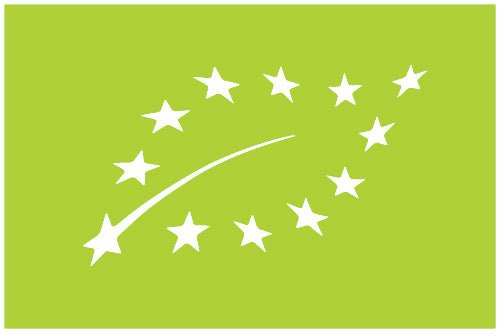A small organ and yet of great importance for men - the prostate. But do you actually know the exact function of the prostate? No? Then you're not alone. A study concludes that only one in four men over the age of 50 knows more about the prostate. That's why we'll tell you how the prostate gland works and what you can do for its health.
Inhaltsverzeichnis
Function of the prostate at a glance
The prostate gland is an organ the size of a chestnut and weighs approximately 20 to 25 grams. It is one of the internal sex organs of the male body. The prostate connects the bladder and the urethra, and it includes a part of the urethra. The two seminal ducts end in this part. However, the connection of different structures is not the function but:
- The prostate's glands produce a secretion that makes up 30 percent of the male ejaculate. The so-called prostatic secretion is thin, has an acidic pH and serves to transport the sperm.
- Sperm, secretion from the prostate and seminal vesicle fluid come together in the prostate. They produce the ejaculate. During ejaculation, the muscles of the prostate contract, transporting the sperm into the urethra and ultimately out.
- The hormone testosterone is converted in the prostate gland into its biologically active form, dihydrotestosterone (DHT).
- During urination, the prostate closes the small ducts so that urine does not enter the seminal ducts. The reverse happens during ejaculation. The muscles of the prostate then close the urethra to the bladder.
Learn more about the hormone testosterone: Boost testosterone

Support your prostate the natural way!
Prostate inflammation and other problems
In younger years, many men take the normal function of the prostate for granted. With age, however, some experience discomfort because the organ is often enlarged. This causes problems with urination. However, that is not the only problem that can be caused by the prostate.
The organ can also become inflamed. An inflammation of the prostate is also called prostatitis and can be caused by bacteria. Prostatitis is either acute or chronic. In both cases, antibiotics are possible for treatment. For chronic prostatitis that was not caused by bacteria (chronic pelvic pain syndrome; CPPS), treatment is based on symptoms. With CPPS, depressive moods also occur in almost half of the cases. Relaxation exercises are therefore doubly important.
Another disease of the prostate gland is prostate cancer, i.e. malignant degeneration of the tissue. The chances of recovery are usually good if the cancer is detected early. Thus, an annual early check-up from the age of 45 is very advisable.
What are typical symptoms of prostate disorders?
In most diseases of the prostate gland, symptoms occur. These can be the following signs:
- frequent urge to urinate (especially at night, typical symptom of prostate enlargement)
- Blood in the urine or semen (recognizable by a brownish discoloration)
- Urinary retention (bladder cannot be emptied completely; difficulty starting to urinate)
- Interruptions in the flow of urine
- Weak urine stream
- Erectile Dysfunction
- Pain in the prostate
- Pain during bowel movements
- Pain or burning during urination
- Pain in the lower abdomen
How to keep the prostate healthy - 5 tips
In case of benign enlargement of the prostate, CPPS or to appreciate your prostate from diseases, you can take action yourself. We give you 5 tips with which you can do something good for your prostate.
1. go to annual medical checkups
Gynaecological check-ups are simply a part of life for women from puberty onwards. It's different for men. For them, there is no reason for a checkup at a young age. Therefore, it is not surprising that later recommended preventive care is missed. At the age of 45 at the latest, men should also have an annual check-up with a urologist. Even before that, it is recommended to pay attention to your body. If you notice signs of prostate disease, you should not wait long and make an appointment. Shyness before a check-up should definitely be put aside, because the examination does not hurt. The earlier a disease is detected, the better the chances of recovery.
2. healthy diet
With a healthy diet you promote general health, strengthen your immune system and reduce inflammation. Therefore, we advise you to eat a varied diet to prevent prostate diseases. It should contain all vitamins, minerals, essential fatty and amino acids. For the prostate gland, a good supply of zinc and selenium is particularly important, because these minerals support the body's defenses. They also reduce oxidative stress, which can contribute to the development of cancer.

3. herbal remedies such as pumpkin seeds
You can supplement your diet specifically with herbal remedies to benefit from other phytochemicals as well. For example, pumpkin seeds and pumpkin seed extract are said to support the prostate and urinary tract. In addition, pumpkin seeds are rich in zinc, which can influence testosterone levels.
Other herbal extracts associated with positive effects on the prostate include: Saw palmetto, nettle, garlic, broccoli, pomegranate, African plum tree and South African star grass. Saw palmetto extract and stinging nettle are among the best studied.
4. frequent ejaculations
Sexual behavior actually has an impact on the development of prostate cancer. In one study, researchers found a link between frequent ejaculations and a reduced risk for the cancer. This association exists across the lifespan as well as after age 40. How ejaculation is triggered, i.e. through masturbation or sexual intercourse, does not play a role here.
5. healthy lifestyle
Why some diseases develop cannot always be determined, and this is also the case with prostate cancer. However, nicotine and alcohol are suspected to have an influence. In other words, if you manage without these substances, you are probably doing your prostate a favor. In addition, it is known that physical inactivity can increase the risk of prostate cancer. So with a healthy lifestyle, you're well on your way to having a healthy prostate even in old age.
Sources
- https://uroweb.org/news/survey-reveals-low-levels-of-awareness-in-men-about-prostate-health-and-function
- https://uroweb.org/guidelines/prostate-cancer
- https://www.amboss.com/de/wissen/Prostata,_Bl%C3%A4schendr%C3%BCse_und_Cowper-Dr%C3%BCse/
- https://bjui-journals.onlinelibrary.wiley.com/doi/abs/10.1046/j.1464-410X.2003.04319.x




 DE-ÖKO-006
DE-ÖKO-006
